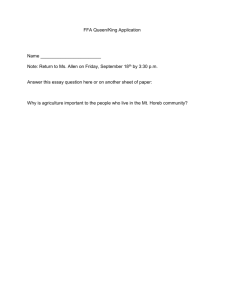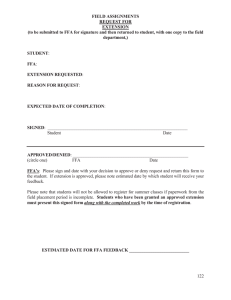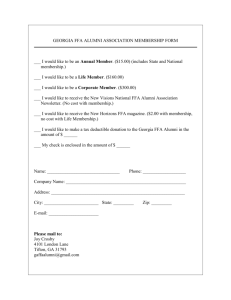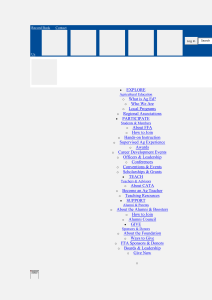CLF512 - - AGRICULTURE CORE CURRICULUM - -
advertisement
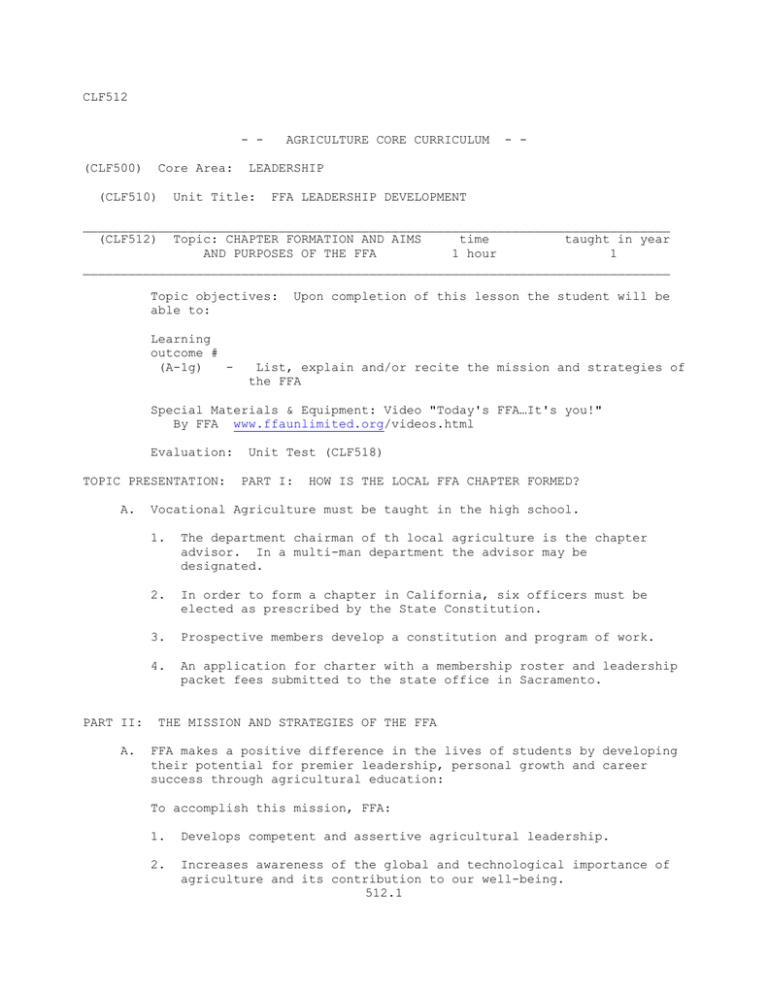
CLF512 - (CLF500) Core Area: (CLF510) AGRICULTURE CORE CURRICULUM - - LEADERSHIP Unit Title: FFA LEADERSHIP DEVELOPMENT ______________________________________________________________________________ (CLF512) Topic: CHAPTER FORMATION AND AIMS time taught in year AND PURPOSES OF THE FFA 1 hour 1 ______________________________________________________________________________ Topic objectives: able to: Learning outcome # (A-1g) - Upon completion of this lesson the student will be List, explain and/or recite the mission and strategies of the FFA Special Materials & Equipment: Video "Today's FFA…It's you!" By FFA www.ffaunlimited.org/videos.html Evaluation: TOPIC PRESENTATION: A. PART II: A. Unit Test (CLF518) PART I: HOW IS THE LOCAL FFA CHAPTER FORMED? Vocational Agriculture must be taught in the high school. 1. The department chairman of th local agriculture is the chapter advisor. In a multi-man department the advisor may be designated. 2. In order to form a chapter in California, six officers must be elected as prescribed by the State Constitution. 3. Prospective members develop a constitution and program of work. 4. An application for charter with a membership roster and leadership packet fees submitted to the state office in Sacramento. THE MISSION AND STRATEGIES OF THE FFA FFA makes a positive difference in the lives of students by developing their potential for premier leadership, personal growth and career success through agricultural education: To accomplish this mission, FFA: 1. Develops competent and assertive agricultural leadership. 2. Increases awareness of the global and technological importance of agriculture and its contribution to our well-being. 512.1 3. To strengthen the confidence of agriculture students in themselves and their work 4. Promotes the intelligent choice and establishment of an agricultural career. 5. Encourages achievement in supervised agricultural experience programs. 6. Encourages wise management of economic, environmental and human resources of the community. 7. Develops interpersonal skills in teamwork, communications, human relations and social interaction. 8. Builds character and promotes citizenship, volunteerism and patriotism. 9. Promotes cooperation and cooperative attitudes among all people. 10. Promotes healthy lifestyles. 11. Encourages excellence in scholarship. ___________________________________________________ ACTIVITY: Form a panel discussion group of former successful FFA members (American FFA degree recipients, State FFA degree recipients, and Chapter Officers, etc.) to explain and field questions pertaining to opportunities in the FFA. ____________________________________________________ 512.2
